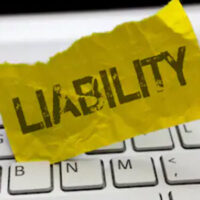How Building Code Violations Could Affect Your Florida Premises Liability Claim

Filing a successful premises liability claim requires proof that a property owner failed to maintain his or her property. In most cases, this includes collecting photographs from the scene of the slip and fall or other accident, obtaining video recordings from the time of the accident, making copies of the injured party’s medical records, and collecting reports about similar accidents that occurred on prior occasions. However, proving that a property owner violated a building code can also play a crucial role as evidence of negligence and in some cases, could be enough to demonstrate negligence per se, or proof that a person’s conduct should automatically be considered negligent, even in the absence of additional evidence.
If you were recently injured on someone else’s property and need help determining whether a building code violation could help in proving your own premises liability claim, please contact a member of our dedicated premises liability legal team today.
Violations that Constitute Negligence Per Se
Negligence per se is a legal theory which states that certain acts can automatically qualify as negligence, without further proof of carelessness, if those actions violate a statute. However, the state Supreme Court has ruled that not all violations are enough to satisfy the requirements of negligence per se. Instead, the court divided legal violations into the following three categories:
- Violations of strict liability statutes, which are written to protect those who cannot protect themselves;
- Violations of laws that establish a duty to take specific measures to protect certain individuals from particular injuries; and
- Violations of any other type of statute.
Of these types of violations, only the first two support a claim of negligence per se, while the third, or violations of standard laws, are only considered enough to establish a prima facie case of a property owner’s negligence.
Building Code Violations
Building code violations typically fall under the third category of violations, because although they are intended to protect the public in general, they are not intended to protect specific individuals. However, Florida courts have also determined that juries are permitted to consider building code violations when determining whether a property owner was negligent in failing to fulfill his or her duty of care toward a tenant. Even in these cases, courts have often been unwilling to award damages to a plaintiff if a building code violation was minor or the only evidence of a property owner’s fault, making it especially important for those who have been injured on someone else’s property, to retain an experienced attorney who can help them build a strong case.
Contact a Florida Premises Liability Law Firm for Help with Your Case
If you were injured on someone else’s property, you may have standing to file a premises liability claim against the owner of the premises to collect compensation for your medical bills, lost wages, property damage, and pain and suffering. Please call Boone & Davis at 954-566-9919 today to learn more about how a dedicated Fort Lauderdale premises liability attorney can help with your own claim.
Resource:
leg.state.fl.us/Statutes/index.cfm?App_mode=Display_Statute&Search_String=&URL=0500-0599/0553/Sections/0553.84.html
